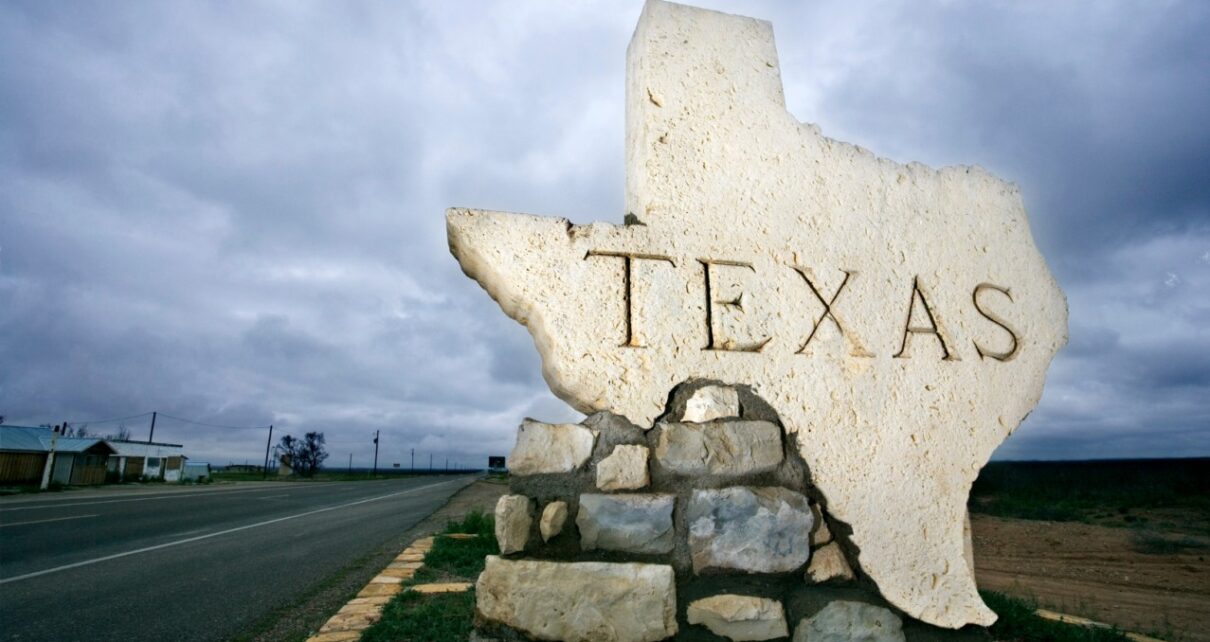Moving from Canada to Texas is a life-changing experience. The vast cultural, financial, and practical differences between the two regions make the journey exciting but also challenging. As a Canadian Expat Living in Texas, I want to share my personal insights on what it’s like to adapt to the Lone Star State. I will also provide an overview of critical aspects such as cross-border transition planning, cultural differences, and most importantly, cross-border financial planning. In the end, I’ll highlight the crucial role that a cross-border financial advisor plays in helping expats, like myself, manage taxes, retirement accounts, and other financial aspects effectively across two countries.
Cross-Border Transition Planning
Before I packed up and made my move from Canada to Texas, there was a lot of cross-border transition planning to be done. From securing visas to finding housing and managing my finances across two countries, it became evident that moving to another country involves more than just hopping on a plane with a suitcase in hand.
Visa and Immigration Considerations
The first and most crucial step for any Canadian thinking of becoming an expat in the U.S. is figuring out the visa process. Canada and the U.S. have a close relationship, but that doesn’t mean you can cross the border and start a new life without proper documentation.
There are several visa options, including work visas, family sponsorships, and investment visas, depending on your situation. As a professional, I applied for a TN visa, which is specifically designed for Canadians and Mexicans under NAFTA (now USMCA). This visa allows professionals from specific fields to work in the U.S. for up to three years, renewable indefinitely. However, I had to make sure that my job offer fit into one of the eligible categories for the TN visa.
For those with families, planning involves obtaining visas for children and spouses, which means there’s a whole set of logistical considerations that will affect the timeline and complexity of the move.
Health Insurance and Healthcare
Another aspect of cross-border transition planning involves healthcare, which works differently in the U.S. compared to Canada. As a Canadian, I was used to universal healthcare coverage, where the government handles most of the healthcare-related expenses. But in Texas, the system is predominantly private, and individuals need to secure their own health insurance, often through their employer.
Choosing the right health insurance plan is crucial. The costs for healthcare in the U.S. can be astronomical if you’re not insured, with routine visits and hospital stays costing far more than what we’re used to in Canada. Many Canadians are shocked by the high price of healthcare in the U.S., and as an expat, having a good understanding of health insurance options is vital.
Employment and Work Culture
The work culture in Texas is different from what I experienced in Canada. Texans have a reputation for being hard-working, ambitious, and sometimes competitive. The office culture can be fast-paced, with an emphasis on results and deadlines. While Canadians are also hard workers, there’s often a greater emphasis on work-life balance north of the border.
As a Canadian Expat Living in Texas, I had to adjust to the idea of working longer hours in some cases and adapting to the American work style. Networking is critical in the U.S., and building relationships in your industry can significantly influence career success. This differs slightly from the more laid-back approach in Canada, where work relationships often develop more organically.
Cultural Differences Between Canada and Texas
Once you’ve handled the logistics of moving to Texas, the next big step is adjusting to the cultural differences. Texas is a unique state with its own traditions, customs, and way of life that can feel vastly different from life in Canada. Here are some of the biggest cultural adjustments I encountered:
The “Bigger is Better” Mentality
If there’s one thing that defines Texas, it’s the concept of “bigger is better.” From the massive trucks on the road to the sheer size of the state, everything feels larger than life. The homes in Texas are often bigger, the highways are wider, and even portions of food served at restaurants can feel exaggerated compared to what you might expect in Canada.
The “bigger is better” mentality also extends into people’s attitudes. Texans are often proud of their state, and that sense of pride and identity is pervasive. It can take a bit of getting used to, especially for Canadians, who tend to be more reserved in their expressions of national pride.
Weather and Climate
One of the biggest surprises for me as a Canadian Expat Living in Texas was the dramatic difference in weather. Canada, known for its cold winters, is a far cry from the sweltering heat of Texas. In the summer months, temperatures can soar well into the 100°F (40°C) range, and the climate is hot and humid. The winters, by contrast, are mild, which was a welcome change for me after years of shoveling snow.
The climate in Texas changes how people live their day-to-day lives. Air conditioning is essential, and outdoor activities are often scheduled in the early morning or late evening to avoid the scorching midday heat. As a Canadian who grew up loving skiing and outdoor winter sports, I had to adjust to a new range of activities more suited to the Texas climate, such as swimming, hiking, and attending outdoor events during cooler hours.
Social Norms and Hospitality
Texans are known for their hospitality, and this is one cultural difference I found especially delightful. People in Texas tend to be warm, friendly, and always willing to lend a helping hand. There’s a genuine sense of community in the small towns, and even in the larger cities like Houston or Dallas, you’ll find people are approachable and polite.
However, there are also differences in social norms. Texans can be more direct than Canadians, who often try to be overly polite or avoid confrontation. Learning how to be more assertive without being perceived as rude was a bit of an adjustment for me.
The pace of life in Texas can also vary depending on where you live. In smaller towns, life is slower, more laid back, and community-focused. In larger cities, the hustle and bustle can feel more akin to big cities in Canada like Toronto or Vancouver.
Cross-Border Financial Planning
One of the most critical aspects of moving from Canada to Texas is cross-border financial planning. Managing finances in two different countries requires careful coordination, and this is where a cross-border financial advisor becomes invaluable.
Currency Exchange and Banking
One of the first challenges I faced as a Canadian Expat Living in Texas was managing currency exchange. The Canadian dollar and U.S. dollar are not always at parity, so managing financial assets and liabilities across two currencies can be tricky.
Opening a U.S. bank account was essential for managing day-to-day expenses like rent, utilities, and groceries. However, I also had Canadian financial obligations, such as paying off loans and managing my investments. A cross-border financial advisor helped me set up a strategy to manage exchange rates effectively, making sure I wasn’t losing money on transfers between Canadian and U.S. accounts.
Tax Implications of Living in Texas
Taxes are one of the most complex aspects of cross-border financial planning. As a Canadian living in the U.S., I had to familiarize myself with both the U.S. tax system and the tax requirements back in Canada. While Texas doesn’t have a state income tax, the U.S. federal income tax system can be more complicated than Canada’s.
Additionally, Canada has its own rules about expatriates. Depending on your situation, you may still be required to file a Canadian tax return. For example, if you maintain assets in Canada, such as property or investments, the Canadian government may still consider you a tax resident. This means that you could be subject to taxation by both countries—unless you take advantage of tax treaties and strategies for cross-border tax planning.
Cross-Border Retirement Accounts
Retirement planning is another area that required expert guidance. Canadians moving to the U.S. need to figure out what to do with their Canadian retirement accounts, such as RRSPs (Registered Retirement Savings Plans) and TFSAs (Tax-Free Savings Accounts). These accounts can have tax implications in the U.S., and figuring out how to manage them properly can save thousands of dollars over time.
For example, while RRSPs are recognized under the Canada-U.S. tax treaty, TFSAs are not. This means that income from a TFSA could be taxable under U.S. tax law, which was a surprise for me. Working with a Canada U.S. expat advisor helped me develop a strategy for handling these accounts, ensuring I wasn’t hit with unexpected taxes.
Cross-Border Tax Planning and Mitigation
One of the greatest challenges for expats is navigating the tax landscape of two different countries. This is where a cross-border financial advisor truly shines. They help manage cross-border tax planning, ensuring that you are in compliance with the laws of both Canada and the U.S., while minimizing your tax liability.
For example, the Canada-U.S. tax treaty exists to prevent double taxation, but it requires careful navigation. I found that consulting a Canada U.S. expat advisor helped me take advantage of provisions in the treaty that allow for tax credits and exemptions, mitigating the risk of being taxed on the same income in both countries.
Additionally, estate planning becomes complex when you have assets in both Canada and the U.S. There are differing rules for inheritance and gift taxes, and having a sound cross-border strategy is essential to avoid complications later on.
How a Cross-Border Financial Advisor Can Help
The role of a cross-border financial advisor in this journey cannot be overstated. As a Canadian Expat Living in Texas, I found that having a knowledgeable advisor made the entire transition smoother and helped me avoid costly mistakes. They provide a range of services tailored to people like me, who are navigating life between two countries.
Expert Guidance on Taxes
One of the most valuable services offered by a cross-border financial advisor is tax planning. They help expats navigate complex tax laws in both Canada and the U.S., ensuring compliance while minimizing tax obligations. This includes utilizing the Canada-U.S. tax treaty, understanding how retirement accounts are taxed, and managing currency exchange in a tax-efficient way.
Retirement and Investment Planning
Managing investments and retirement accounts across two countries is another area where a Canada U.S. expat advisor proves invaluable. They help create a unified investment strategy that takes into account the different tax rules and economic conditions of both countries. Whether you have RRSPs, 401(k)s, or IRAs, a cross-border advisor helps optimize these accounts for long-term growth while minimizing tax penalties.
Cross-Border Estate Planning
Estate planning becomes more complicated when you hold assets in both Canada and the U.S. A cross-border financial advisor can guide you through the legal and tax implications of estate planning, ensuring that your heirs don’t face unnecessary tax burdens or legal challenges down the road.
Ongoing Financial Management
Finally, a cross-border financial advisor offers ongoing support. Whether it’s keeping up with changing tax laws, managing currency fluctuations, or helping you navigate new financial challenges, they provide peace of mind that your financial well-being is in good hands.
Final Thoughts
Being a Canadian Expat Living in Texas is an exciting adventure filled with both opportunities and challenges. The cultural differences, climate, and social norms are part of the fun of living in a new place. However, the complexity of cross-border financial planning, tax laws, and retirement strategies can be overwhelming without expert guidance.
That’s where a cross-border financial advisor comes in. From managing cross-border tax planning to optimizing investments and estate planning, they provide crucial support for expats navigating life between two countries. So if you’re thinking of making the move from Canada to Texas, be sure to have a solid financial strategy in place—and don’t hesitate to enlist the help of a Canada U.S. expat advisor to make the transition as smooth as possible.





